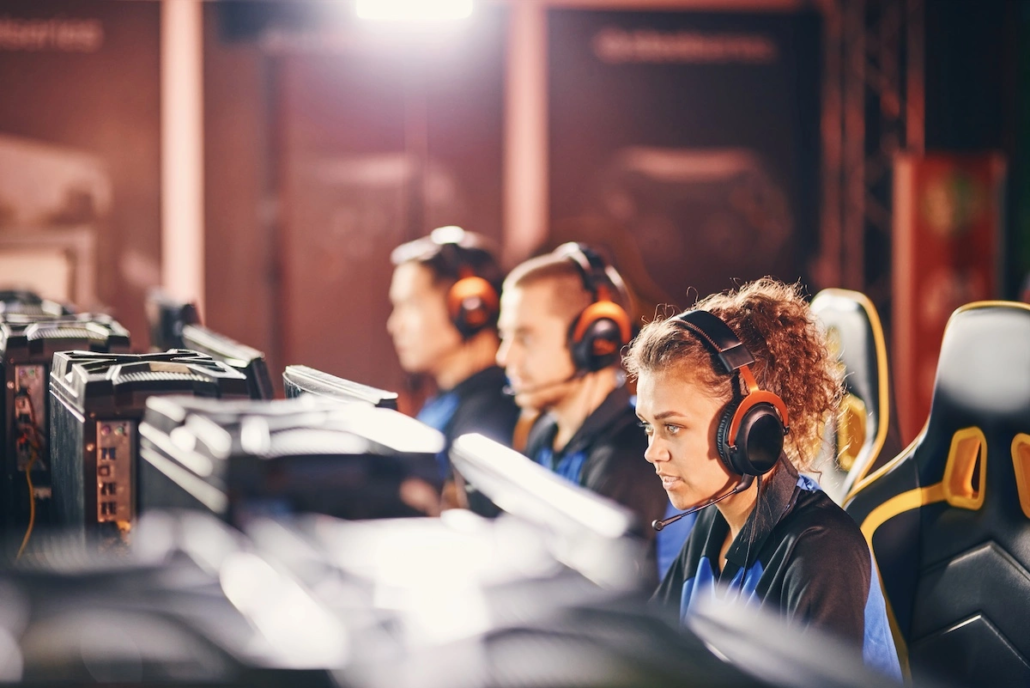How content creators power the esports ecosystem

It’s no secret that esports and live streaming have completely exploded in the past few years.
It’s gone from a slightly niche pastime into a global cultural phenomenon.
The truth is that competitive gaming isn’t a weekend hobby anymore—it’s a booming industry worth over $1.6 billion, with a fanbase that reaches every corner of the globe and is even rivaling traditional sports in popularity.
But what’s really powering this momentum?
Let’s find out.
The beating heart of the esports ecosystem
At its core, the esports ecosystem is a dynamic web of game publishers, competitive leagues, streamers, production teams, marketers, and, of course, millions of viewers.
Whether you’re watching a League of Legends world championship or just a casual run-of-the-mill Valorant stream, you’re part of a growing arena fueled by real-time entertainment, fandom and interactive storytelling.
Live game broadcasts have become full-blown cultural touchpoints. We’re talking halftime shows, fan-generated memes, Twitch emotes and even charity streams that raise millions of dollars.
These broadcasts shape how people celebrate games and highlight just how large and passionate the communities that form around them are.
As games like Fortnite, CS:GO, Overwatch, Call of Duty and many others host increasingly cinematic tournaments, the lines between gaming, entertainment and performance continue to blur.
And with streaming platforms like Twitch and YouTube Gaming delivering instant access to global audiences, that cultural impact is only getting bigger.
Streamers and influencers: The new face of entertainment
Now enter the creators, the faces behind the games.
From high-energy Twitch streamers like xQc to thoughtful YouTubers and multi-platform influencers like Hasan Piker, content creators sit at the very intersection of culture and digital media.
These people are commentating, crafting narratives, building loyal audiences and influencing everything from playstyles to purchase decisions.
To put it simply, streamers influence esports and vice versa.
Creators wear a number of different hats.
Brand ambassadors, community organizers, cultural commentators—you name it.
Many end up becoming trusted voices in gaming circles, where they have the power to shape public opinion about new titles, gameplay mechanics and industry trends—with some even spilling over into general day-to-day discourse.
And when a creator goes live, they’re doing far more than just ‘playing a game’, they’re performing, reacting and connecting with their audiences in real time.
That kind of immediacy holds a lot of power. It creates authenticity—and in a digital age where attention and connection are the currency, content creators are the ones with wealth to spare.
The cultural impact beyond the game
Live streaming and the role of content creators are changing what entertainment looks like.
It’s real-time, it’s personal and it’s becoming more and more globalized.
More than anything, live game broadcasts have created a shared digital culture, where fans across continents gather in chat rooms, post reaction clips and build entire identities around their favorite games and creators.
They’ve gone from passive spectators to active co-creators.
Just look at how terms from games have made their way into everyday language, or how esports jerseys are worn with the same pride as an NFL top would be—or even how entire careers, from casting to coaching, have emerged from this space.
Streaming culture has also helped shine a light on social causes, fundraising efforts and global conversations.
For example, content creator DrLupo has raised more than $15.3 million for children’s research hospital St. Jude’s since 2018.
Or Z Event, which raised $11.87 million for charity in just one stream, earning a Guinness World Record for the most money raised by a live stream fundraiser.
Whether it’s a big charity stream for disaster relief or a candid talk about mental health, the communities built around streamers tend to reflect real-world impact and can make a big difference in people’s lives.
How to get in the game
So, if you’re interested in being a part of this world—where does this leave you?
Whether you’re fascinated by esports marketing, digital storytelling, animation design or community engagement, the opportunities are wide open in a growing industry that’s only getting more popular and relevant.
At The Los Angeles Film School, our programs in Media Communications, Entertainment Business and Animation are all built around understanding the world of modern entertainment.
And because we’re in the very heart of Hollywood and have hands-on learning and industry insight running through every program, you’ll get to explore how game visuals, content creation and the entertainment business collide.
Ready to press play?
The future of entertainment is happening now and it’s happening live.
Whether you’re behind the camera, in front of the mic or animating the next big universe, there’s a place for you in the esports ecosystem.
Curious where your skills might fit in?
Explore our degree programs to find your path.
